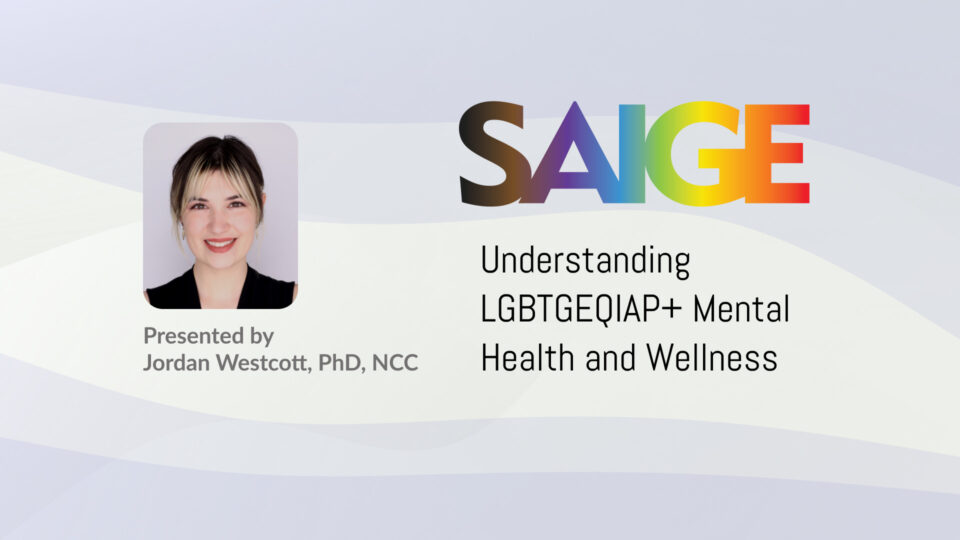
Understanding LGBTGEQIAP+ Mental Health and Wellness
Pricing
Information
Recorded
-
-
Learning Objectives
Participants will be able to:
-
Describe the basics tenets of stress and coping, ecological, and health equity frameworks for explaining LGBTGEQIAP+ health.
-
Identify one or more strengths and weaknesses of the models presented.
-
Apply one or more frameworks to conceptualizing and intervening with LGBTGEQIAP+ clients.
Educational Goal
The educational goal of this workshop is to provide an overview of frameworks to understand LGBTGEQIAP+ health and how to leverage that conceptualization to promote wellness in one’s clinical practice.
Description
LGBTGEQIAP+ individuals experience health inequities relative to cisgender, straight people, yet many LGBTGEQIAP+ people are in good health. This session will provide an overview of frameworks for understanding LGBTGEQIAP+ health, their application to clinical practice, and how they can be leveraged to facilitate optimal growth and development. Exploring stress and coping models, ecological models, and health equity frameworks, attendees will gain a deeper understanding of how LGBTGEQIAP+ persons’ health is influenced by individual and structural factors, as well as what they can do to promote wellness for this population.
Target Audience
- Counselor
- Marriage & Family Therapist
- Psychologist
- Social Worker
- Substance Use Disorder Professionals
Presenters
Dr. Jordan Westcott (she/her) is an Assistant Professor of Counselor Education at the University of Tennessee, Knoxville. Her research focuses on how structural factors impact mental health and wellness for marginalized populations, particularly LGBTQ+ communities, older adults, people with disabilities, and intersections therein. She is particularly interested in how counselors can advance health equity for these populations through practice, research, and service.
Financially Sponsored By
- SAIGE
